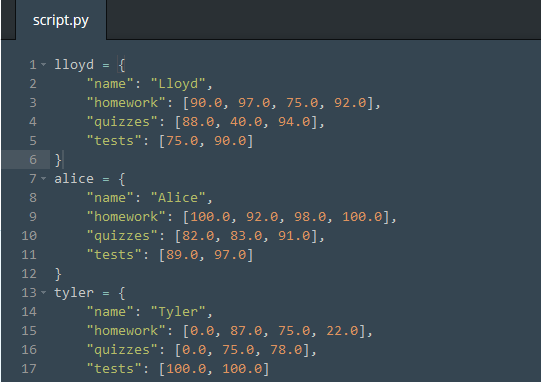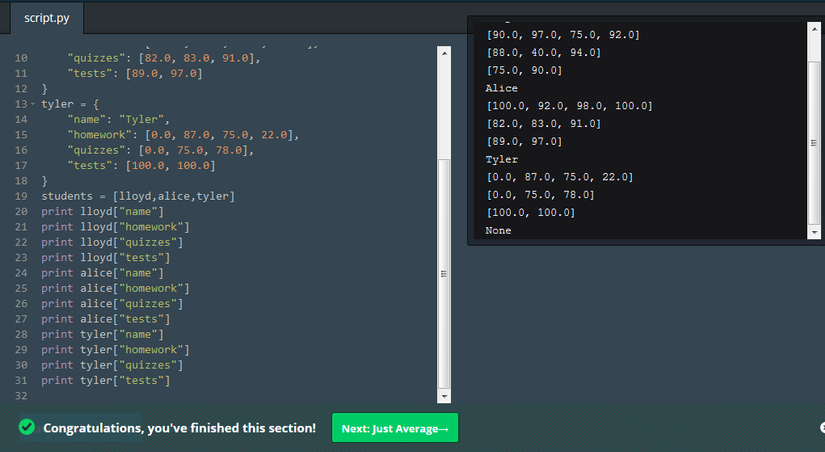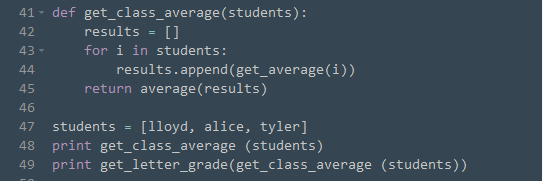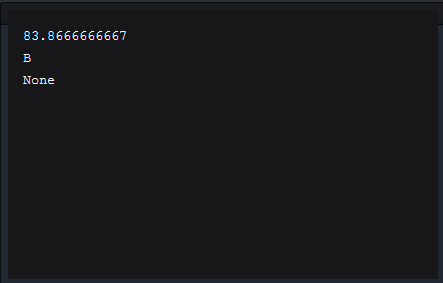Python for beginner - GPA Calculator Sample
Why learn Python? Python is a general-purpose, versatile and popular programming language. It's great as a first language because it is concise and easy to read, and it is also a good language to have in any programmer's stack as it can be used for everything from web development to software ...
Why learn Python?
Python is a general-purpose, versatile and popular programming language. It's great as a first language because it is concise and easy to read, and it is also a good language to have in any programmer's stack as it can be used for everything from web development to software development and scientific applications.
Learn by sample code
Beside self-training the basic concept on Python such as: variable, class, data type, ... To give you guys the first look on what Python look like. I wanna show you a traditional sample code which help student calculate their GPA, take a look!
Show me the code!
A. Create dictionaries
- Create three dictionaries: lloyd, alice, and tyler.
- Give each dictionary the keys "name", "homework", "quizzes", and "tests".
- Now fill out your lloyd, alice and tyler dictionary with the appropriate scores.

- Create a list called students that contains lloyd, alice, and tyler.
- For each student in your students list, print out that student's data, as follows:

B. Create function average
- Define a function called average that has one argument, numbers.
- Inside that function, call the built-in sum() function with the numbers list as a parameter. Store the result in a variable called total.
- Use float() to convert total and store the result in total.
- Divide total by the length of the numbers list. Use the built-in len() function to calculate that.
- Return that result.

C. Create function get_average
- Define a function called get_average that takes one argument called student.
- Make a variable homework that stores the average() of student["homework"].
- Repeat step 2 for "quizzes" and "tests".
- Multiply the 3 averages by their weights and return the sum of those three. Homework is 10%, quizzes are 30% and tests are 60%.

D. Create function get_letter_grade
-
Define a new function called get_letter_grade that has one argument called score. Expect score to be a number.
-
Inside your function, test score using a chain of if: / elif: / else: statements, like so:
- If score is 90 or above: return "A" - Else if score is 80 or above: return "B" - Else if score is 70 or above: return "C" - Else if score is 60 or above: return "D" - Otherwise: return "F"

E. Create function get_class_average
- Define a function called get_class_average that has one argument students. You can expect students to be a list containing your three students.
- First, make an empty list called results.
- For each student item in the class list, calculate get_average(student) and then call results.append() with that result.
- Finally, return the result of calling average() with results.
- Finally, print out the result of calling get_class_average with your students list. Your students should be [lloyd, alice, tyler].
- Then, print the result of get_letter_grade for the class's average.

And the result

